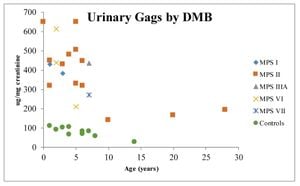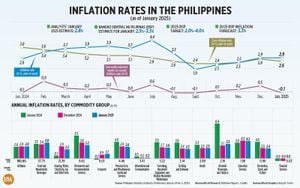The case of Antoinette Lattouf, the journalist suing the Australian Broadcasting Corporation (ABC) for unlawful dismissal, has captured significant media attention as key figures involved have testified before the Federal Court. Lattouf was dismissed after she shared content related to the Israel-Gaza conflict, raising questions of political bias and racial discrimination within the public broadcaster.
During court hearings, the former ABC chair, Ita Buttrose, faced extensive questioning about her correspondence and reactions following Lattouf's suspension. Buttrose received several emails from the public expressing gratitude for Lattouf's dismissal, which she described as “congratulatory.” She defended her reaction, stating, “So I could go and have a happy holiday,” when responding to complainants. “No one is ever happy with the dismissal of anyone,” she insisted, denying any satisfaction over Lattouf's situation.
Ms. Lattouf, who was pulled from her position as a fill-in host on the ABC's Sydney Mornings show, claims the decision was linked to her sharing of an Instagram post by Human Rights Watch. The post discussed Israel's alleged use of starvation tactics, which prompted what she said was a flood of email complaints. Lattouf contends these complaints resulted from political pressure from pro-Israeli lobbyists.
While the ABC asserts the decision to remove Lattouf was made solely by Chris Oliver-Taylor, the broadcaster’s former head of content, evidence presented during the trial suggests otherwise. Legal representations revealed significant email exchanges among ABC management, with Buttrose and others discussing their dissatisfaction with Lattouf’s continued engagement on air.
Notably, it was revealed during court proceedings on December 20, 2023, one of Buttrose’s emails suggested whether Lattouf might have “the flu or COVID” to create a “face-saving idea.” This remark has caused quite the stir, with Lattouf's barrister, Philip Boncardo, questioning Buttrose’s intentions behind these comments, leading the former chair to brush it off as merely a suggestion.
Meanwhile, the court has also seen shifts from the ABC on the matter of race. Initially, the broadcaster had contested the existence of the Lebanese race, but during the case, the ABC’s barrister Ian Neil admitted the organization no longer disputes Ms. Lattouf's racial background, stating, “The ABC does not put in issue...whether there is a Lebanese, Middle Eastern or Arab race.” This admission was made as community groups demanded accountability for the original legal argument claiming the contrary.
Lattouf's case hinges not only on her dismissal but also on claims of racial discrimination, which she argues were compounded by the public nature of her termination and the subsequent media attention. The court proceedings have highlighted these complex layers, with testimonies underscoring the delicate balance the ABC tries to maintain amid political sentiments.
The comments made by Laura Tingle, ABC board director, brought concerns over reputational damage to light after Lattouf's case gained exposure. Tingle warned Buttrose about the potential issues the broadcaster faced, noting it had “deeply unsettled staff who feel the ABC is not supporting them.”
Trial officials have pointed to errors made by the ABC's legal representatives, including the accidental public disclosure of confidential complaint details, causing additional scrutiny on the broadcaster’s internal protocols.
It is also alleged by Lattouf's legal team, amid back-and-forth cross-examinations, management did little to clarify social media posting guidelines, leaving it ambiguous as to whether she had been directed or merely advised against discussing sensitive topics on her platforms. The crux of the matter revolves around perceptions of Lattouf's impartiality and timely management decisions influenced by both internal and external pressures.
Key witnesses from the ABC, including content directors, have illustrated the extent of managerial discussions leading up to Lattouf’s dismissal. The court has seen evidence indicating the attempts from within to rectify public disapproval without adequately addressing the allegations of discrimination stemming from her removal.
The trial continues to draw attention as Lattouf seeks compensation, emphasizing her belief she was not only unfairly dismissed but also discriminated against due to her political views and ethnic background. The outcome of this case may set precedents concerning employment rights within media organizations amid growing pressures from activist groups.
Polling on the situation within the ABC shows divisions among both staff and audiences, reflecting broader societal debates over race, politics, and the role of public broadcasters. The ABC management has denied claims of caving to political pressures, asserting adherence to their editorial principles when making personnel decisions.
With more testimonies scheduled, particularly those from other ABC executives, the trial moves toward potentially pivotal conclusions about employee rights, broadcast impartiality, and the interplay of race and opinion within Australia’s media environment.



